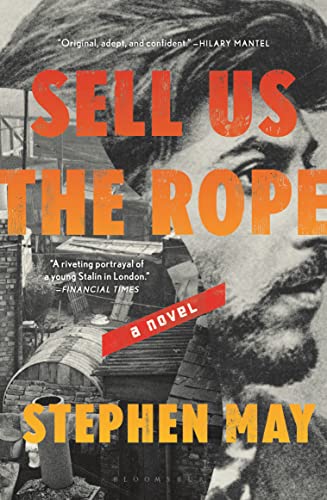Sell Us the Rope
Russian revolutionist Josef Stalin (Koba) has come to London to attend the 5th Congress of the Russian Social Democratic Labour Party in May 1907. Also attending are renowned reformer Rosa Luxemburg and Finnish activist Elli Vuokko. At the conference, delegates hope to resolve differences between Bolsheviks and Mensheviks. Outside the meeting rooms, delegates seek to raise money for their cause, and operatives from the Okhrana, the tsarist secret police, look for informers.
Sell Us the Rope is May’s first historical novel. He is author of four other novels and several plays. In this work, May provides a complex profile of Koba as a young man. While Stalin is remembered as an uncompromising brute, May presents a man sensitive to others. In May’s rendering, Koba notices the desperate living conditions of the lower class in London. He feels for the men who must wander across neighborhoods at night because they have no lodging—law prevents them from sleeping openly on the street—and the children who do the work relegated to serfs and slaves in other countries. Koba develops emotional connections to the lad who manages the rooming house where he is staying, as well as a romantic relationship with Elli.
May does not spend much time at the congress itself, nor on the fictional plan to implicate gunrunner Maksim Litvinov as an Okhrana operative. And he admittedly includes errors of fact. But the strength of the novel is not Koba’s actions but his observations. Koba recalls and appreciates the presence of a butterfly in the drear surroundings of a factory, contrasts the swirls of script from Georgia’s “magical alphabet” with the “blocky shapes” of Cyrillic, and notes that “parliaments rarely deliver real change” and rich men rarely laugh. Evocative and thought-provoking.










